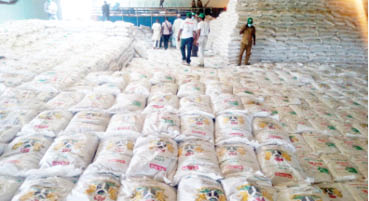Farmers will continue to experience shortage of fertiliser in 2023, a joint report by the United Nations’ Food and Agriculture Organisation (FAO) and the World Trade Organisation (WTO) said.
The duo in a report titled “Global Fertiliser Markets and Policies: A Joint FAO/WTO Mapping Exercise” said the outlook for next year (2023) is not better either as the key drivers remained largely unchanged.
“Overall, international fertiliser supplies are likely to remain restricted in 2022/23 since stocks are low and geopolitical tensions have led to additional supply restrictions, giving rise to concerns about both reduced fertilizer availability and access, as well as adverse effects on food production and food security.
The organisations said that fertiliser prices, like all commodity markets, are governed by the interaction between supply and demand. On the supply side, there are high and volatile energy prices, trade interruptions and high transportation costs, and export limitations while on the demand side, there are subsidies and high agricultural prices, resulting in high affordability.
The report painted a bleak future for Africa where only 3-4% of the world’s fertiliser is used on the continent, and roughly 50% of that amount is used to nitrify the continent’s crucial cash crops. Since some agrarian-based communities have very severe food insecurity issues as indicated by their high prevalence of undernourishment and high food insecurity experience, reductions in fertilizer use would have serious consequences, including compromising their ability to feed themselves.
“With prohibitive international prices, fast depreciation of currencies against the US Dollar (the currency of trade), appreciation of the Russian ruble (which makes Russian exports more costly), high levels of indebtedness as well as inefficient transportation and marketing infrastructure, there are rising concerns that many African countries will not be able to access international fertilizer markets without external support,” it said.

 Join Daily Trust WhatsApp Community For Quick Access To News and Happenings Around You.
Join Daily Trust WhatsApp Community For Quick Access To News and Happenings Around You.


